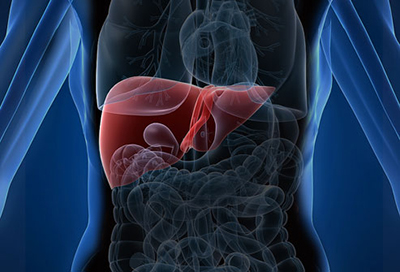
Source: medicsindex.ning.com
Chronic hepatitis B (CHB) is a common disease in Malaysia. However, the prevalence of this condition varies between less than 1% to about 10% depending on the ethnicity. It is higher among the Chinese population. Compared to people without hepatitis B, patients with chronic hepatitis B are 100 times more likely to develop liver cancer. The annual incidence of hepatitis B increased with age. The risk is even higher if one of your family members developed liver cancer. In fact, if your liver is damaged (cirrhosis), the annual incidence of developing liver cancer increase to 2.5% per year, compare to 0.5% in those with carrier state.
Maybe I will share about how I approach a patient with newly diagnosed chronic hepatitis B who steps into my clinic. I will usually start by asking how they came to know about CHB and followed by looking for possible methods of acquiring this condition. Doctors would usually ask about family history of hepatitis B and liver cancer, high risk behaviour, history of blood transfusion, trauma, and surgery. Apart from this, I would also enquire about symptoms related with complication of hepatitis B infection, such as jaundice. After brief history taking, I will examine the patient for sign’s of chronic liver disease.
I always tell the patient what type of blood investigation that I intend to order. During the first visit, I would request for full blood count, coagulation factors, liver function test, hepatitis B serology test. Sometimes, we may request for quantitative hepatitis B viral load (or concentration of virus in the body). Why sometimes? The Hepatitis B viral load (quantitative) is an expensive test (at least RM 400.00). The test is usually used to monitor the response of patient to treatment and to classify patient’s disease status. Young patients during immunotolerent phase of hepatitis B may have very high viral load, despite normal liver function. Doctor would only initiate treatment when the liver function is abnormal. Studies had proven that response to treatment of hepatitis B is poor when treatment is started with normal liver function. Most of the time, I would only repeat liver function test. I may consider repeating surface antigen or e-antigen (only in e-antigen positive cases) yearly, rarely patients may recover spontaneously from hepatitis B.
In my patient, I would request alpha-fetoprotein (AFP) blood test and ultrasound for liver cancer surveillance. AFP is usually raised in patient with liver cancer. However, not all raised AFP is due to liver cancer. If your blood investigation showed raised AFP, your doctor will discuss with you on further action. Ultrasound will help to look for features of liver damage and liver tumour. Usually these two tests will be repeated during each visit to the clinic.
So, how frequently I will see my patient and repeating the tests? The frequency of visit depends on your condition or stage of disease. For patients with no evidence of liver damage or cirrhosis, we would see less frequently. For patients with cirrhosis, we may consider to see every 3 to 4 months, pending on degree of liver injury. The frequency of follow up is dependent on your blood results and your risk for liver cancer.
Before the patient walks out from my room, I usually inform them things to watch out for. Acute hepatitis B flare may occur any time. Thus, patient needs to look out for symptoms such as lethargy or feeling unwell, jaundice, or tea coloured urine. If any of these symptoms occur, patient needs to go to the nearest hospital immediately. Severe hepatitis B flare may lead to acute liver failure, and death. For those with liver damage, I would advice them on symptoms and signs of gastrointestinal bleeding; decompensation of liver status such as abdominal and leg swelling, altered mental state or change of behaviour. Most importantly, I would tell them to avoid things that may aggravate their liver condition, especially alcohol.
In short, learn more about your disease and hopefully your disease will remain stable. Not every one with CHB will develop complication provided you look after it carefully.
Dr. Ngiu Chai Soon is a consultant gastroenterologist and Dr. Wong Zhiqin is a MRCP holder. They both work in a tertiary care hospital in Kuala Lumpur.
[This article belongs to The Malaysian Medical Gazette. Any republication (online or offline) without written permission from The Malaysian Medical Gazette is prohibited.]
